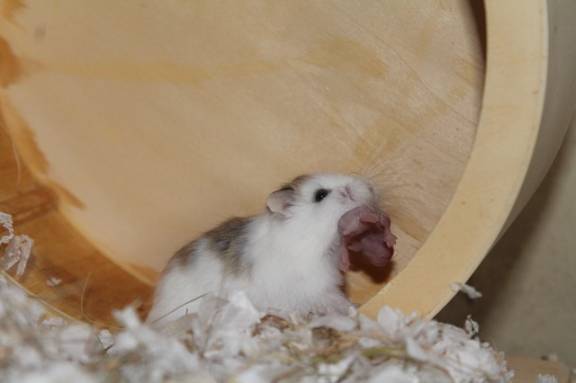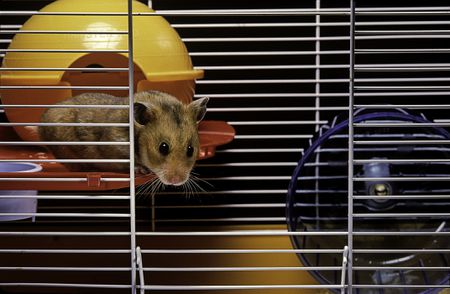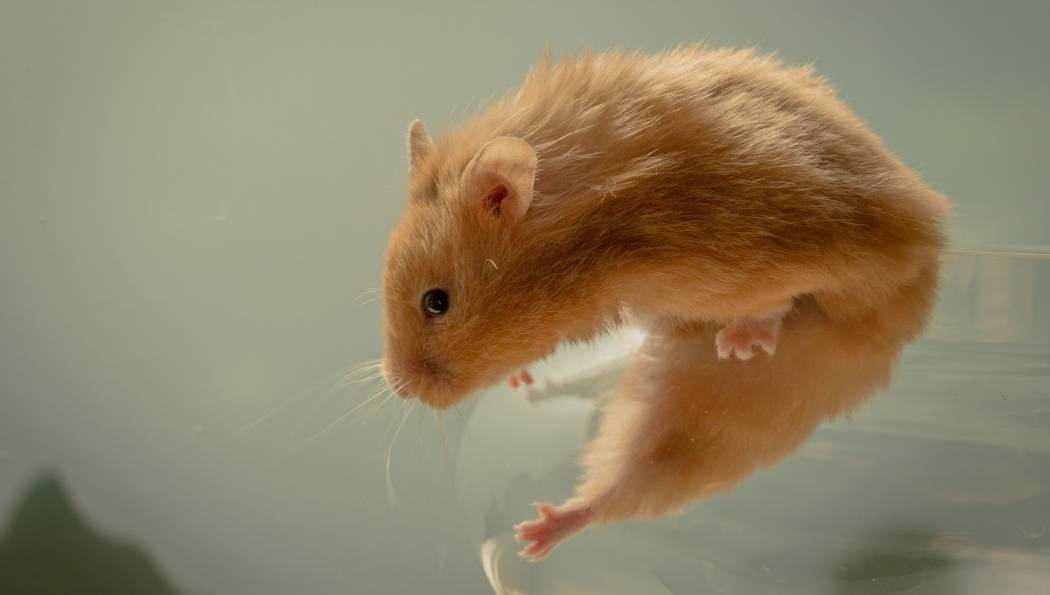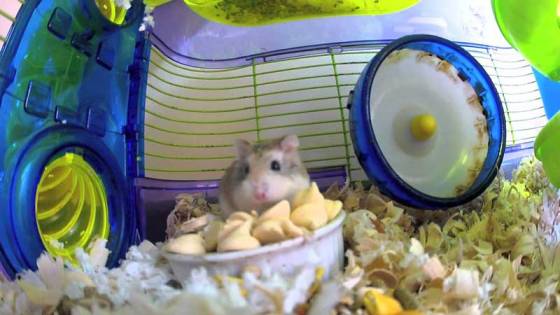Connect with a verified veterinarian in minutes. Licensed vets are available 24/7 to answer your questions. No need to worry about your furry family member.
Hamsters are adorable little pets, which are fun to watch and interact with (when they allow it!). It’s also cute when hamsters have babies; however, this can also be a tragic time for pet parents. The reason is that a hamster will sometimes eat their babies.
If your hamster has babies, you may not notice when they begin to disappear. But when you do, it’s very upsetting. You wonder where on earth the babies could have gone, especially when it’s impossible for them to get out of the cage.
While it sounds like a horror story, it does happen on occasion. There are several reasons that can lead a hamster to eat its young. We’ll take a look at these in the following sections.
1). Stress
Mother hamsters that are stressed may eat their babies. Being pregnant, giving birth, and then caring for all the babies can be difficult for a hamster mother. But the stress may also come from her environment. For instance, if she doesn’t have a nesting box in the cage, then she feels the babies are in danger. This can lead her to take drastic action.
What’s more, the room where her cage is located may be too noisy, and there may be too much activity around. Hamsters prefer to have a quiet environment where they can take care of their young.
When the hamster mother is stressed, they may kill and eat their babies. This is very sad. However, if you keep the hamster’s cage in a quiet place and leave her undisturbed (aside from feedings), then she may feel comfortable and not stressed. In that case, she will probably care for the babies normally.
2). Fearful
Another cause for a hamster to eat her babies is fear. When hamsters are afraid, they may kill their young. Threats to your hamster may come from other pets, loud noises, being in a room that’s too active, being disturbed too often, and more.
For this reason, be sure to leave the hamster mother alone with her babies. Only check on your hamster and her babies once a day and don’t try to handle the babies. Just make sure your hamster has enough food and water, and then leave her to raise her young undisturbed. Make sure her cage is in a room that’s quiet and doesn’t have too much activity.

Review symptoms, medications & behavior to keep your pets healthy with a Vet Online in just minutes.
Ask a Vet Live Now3). Lack of Food & Water
When resources are low, a hamster mother may resort to eating her babies. For one thing, the mother needs plenty of nutrition to keep herself healthy and to provide milk for her babies. When a hamster is feeding so many babies, she requires additional calories, too. She also requires access to plenty of fresh water every day to make enough milk for her young.
If she doesn’t have enough food, then she will eat her babies. This may be because she’s hungry or isn’t producing enough milk for her babies. When resources run low, then she will eat her babies. This is also what hamsters living in the wild will do with their young.
4). Too Many Babies
It can also happen that a mother hamster has too many babies to care for on her own. This may happen with a very large litter or even with a first-time mother. If the mother isn’t able to handle all the babies, she may eat some or all of them.
What’s more, if a hamster mother is too young, she may also feel overwhelmed by having babies. Her instincts will be to eat the babies because she’s not sure how to care for them. So, never allow a hamster under the age of two or three months to get pregnant. She needs to be of the right age to have healthy pups.
In this case, there’s not much that you can do. It’s a natural instinct in hamster mothers. And it may be that the next time your hamster has babies (months later), she will feel more able to take care of a large litter of pups.
5). New Scent Introduced to the Cage
Another reason that hamster mothers may eat their babies is because of a strange scent in the cage. When a hamster gives birth, she becomes acquainted with the smell of each baby. She cleans them and cares for them every day. The scent is how she recognizes her own young, too.
If the mother smells a new scent in the cage, this may cause her to eat her babies. This may happen if you put your hand in the cage and touch anything, including the babies. This can cause the mother to possibly not recognized her own young and then kill them.
6). Lack of Space
When a mother hamster gives birth, she needs plenty of space to create a nest for her babies. She also needs enough space to get exercise when she wants it. If the cage is too small, the hamster may eat her babies.
7). Something is Wrong with the Babies
Another reason that a hamster may eat her babies is that there’s something wrong with them. It may be that one or two babies have some congenital birth defect that we can’t detect. However, the mother can sense these problems. She instinctively realizes these babies may pose a threat to the nest or that they are unhealthy. For this reason, she may eat them while caring for the rest of the litter as usual.
This is nature’s way of taking care of animals that are not healthy. They would not have a good life and would suffer. So, the mother may eat these babies if she senses there’s something wrong with them.
8). Leaving the Father Hamster in the Cage
Another huge problem is leaving the father hamster in the cage after the babies have been born. For some reason, father hamsters are prone to eating their babies.
9). Mother May Be Sick
It’s also possible the mother hamster is not well when she gives birth. She may feel she needs extra nutrients to keep her healthy and safe. For this reason, she may eat one or two babies after they’re born.
We hope this information can help you avoid your hamster eating her young. Keeping her cage in a quiet, undisturbed room can help. And make sure she has access to plenty of water and food. Lastly, never handle the hamster babies, as this can cause them to smell differently.
We wish you and your hamster family all the best!
Connect with a verified veterinarian in minutes. Licensed vets are available 24/7 to answer your questions. No need to worry about your furry family member.

Kyoko
Kyoko is from a family of 3 and moved to New York with her parents and siblings when she was 13. Kyoko is fond of spending a great amount of time with pets, specifically her beagle Luna and cat Missy. Her boyfriend often complains that she spends too much time giving attention to their animals. Kyoko has written dozens of articles concerning pets and is aiming at owning a pet shop one day!
Review symptoms, medications & behavior to keep your pets healthy with a Vet Online in just minutes.
Ask a Vet Live Now




